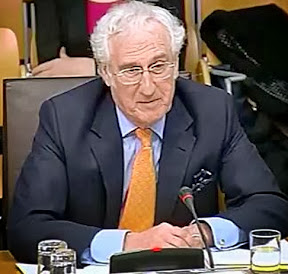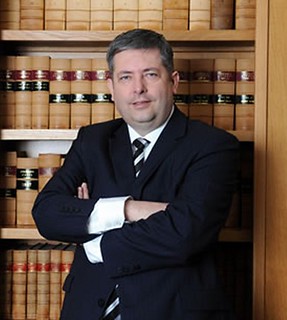 Lord President Brian Gill – ‘good rule’ of corroboration should be retained. SCOTLAND’S top judge the Lord President, Lord Brian Gill, appeared before Holyrood’s Justice Committee yesterday, warning against supporting plans by the Scottish Government to remove the long held safeguard of Corroboration, where evidence in a court of law is needed from two separate sources for a conviction.
Lord President Brian Gill – ‘good rule’ of corroboration should be retained. SCOTLAND’S top judge the Lord President, Lord Brian Gill, appeared before Holyrood’s Justice Committee yesterday, warning against supporting plans by the Scottish Government to remove the long held safeguard of Corroboration, where evidence in a court of law is needed from two separate sources for a conviction.
Speaking to MSPs on the Scottish Parliament's Justice Committee, 20 November 2013, Lord Gill, the Lord President of the Court of Session, said the rule - which requires that evidence against an accused person must come from more than one source - was one of the "finest features" of the country's justice system.
He told MSPs that only one judge in Scotland, the Lord Justice Clerk Lord Carloway - who recommended abolishing corroboration in his review of criminal law and practice - supported getting rid of the rule, with all other judges opposed to the move.
Lord Gill told MSPs corroboration justice safeguard should be retained (Click to watch)
Giving evidence to msps on the intentions of the Scottish Government to remove corroboration to help the Crown Office secure higher prosecution statistics, Lord Gill told the committee: "I don't think this will improve the quality of justice in Scotland in any way.
"I think there is a very serious risk there will be fewer convictions and I also think that if you make this change in isolation, without looking at the wider picture, there are consequences that at the moment are unknowable but could be very adverse to the system."
He added that scrapping corroboration "might increase the number of prosecutions" but said he was "certainly not convinced it will increase the number of convictions".
Lord Gill argued getting rid of the requirement would mean defence lawyers would be able to "go to the jury and say 'would you convict my client on the word of one person, with nothing else to support it?'".
He went on: "That could be a a very powerful line to take with juries and if corroboration is abolished I am not persuaded it will increase the conviction rate."
He stressed: "We've got to think very carefully about what the consequences of this could be. It's a major change which has consequences, many of which are unknown at this stage.
"It's not just a piece of law reform in the narrow area of the law of evidence, this affects the whole approach of our society towards justice and it could have consequences which could be very, very serious.
"By and large we do not have many miscarriages of justice in Scotland and when they are discovered we put them right. There are very few. My fear would be there will be many more if corroboration is abolished."
"I think we should be very proud of the fact we have something that other jurisdictions do not have, it is one of the great hallmarks of Scottish criminal law.
"I take the view we are all privileged in Scotland to live in what is a just society, and the reason for that is our criminal system is rooted in the idea of fairness and corroboration is, in my opinion, a critical element in that.
"So, I'm not here to apologise for the fact that we've got corroboration, I think we should be very grateful that we do."
Lord Gill told MSPs this was the "general view of the judiciary", adding: "I asked every judge to express their view individually to me. With the exception of my colleague the Lord Justice Clerk, all the judges were opposed to the abolition of corroboration."
Lord Gill added corroboration was "not some sort of legal relic from antiquity", saying: "We didn't get where we are by accident, the fact that we have this rule in our law, which I regard as one of its finest features, is a result of centuries of legal development and legal thought.
Concluding his testimony, Lord Gill told MSPs : "It has been found to be a good rule and I would say listen to the wisdom of the ages, it has a lot to tell us.”
All of Scotland’s High Court judges have announced their support for the retention of corroboration : Judges respond to public consultation on Carloway Report
On 3 July 2012, the Scottish Government launched a public consultation seeking views on how best to reform areas of Scottish criminal law and practice. This consultation was based on the recommendations set out in Lord Carloway’s Report on criminal procedure which was published in November 2011.
The Judges of the High Court of Justiciary, other than Lord Carloway, have now submitted their response available online here : Response by the Senators of the College of Justice to SG consultation : Reforming Scots Criminal Law & Practice to proposals in the present consultation paper. While their response provides support for the majority of the Carloway Review proposals, they unanimously agree that the rule of corroboration should not be abolished.
The full Carloway Review can be read online here: Carloway Review Report & Recommendations 2011 along with the Executive Summary and Lord Carloway's statement
It should be noted Scottish Law Reporter supports the retention of corroboration, and has reported on the issue in previous coverage HERE

